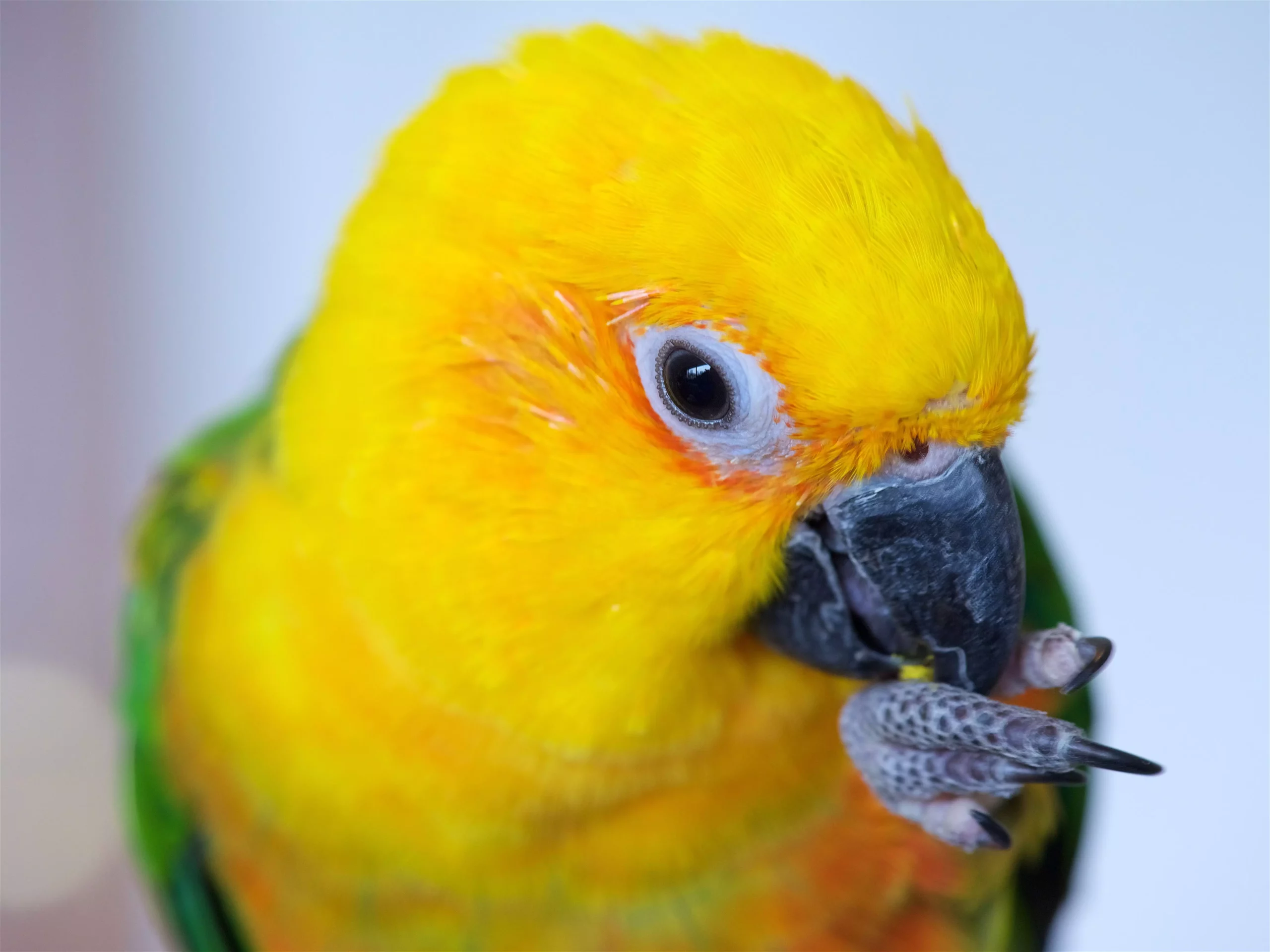Jenday conures, scientifically known as *Aratinga jandaya*, are small yet vibrant parrots, known for their affectionate nature and playful antics. As cherished companion animals, they have garnered a significant following among bird enthusiasts, making them a popular choice for families and individuals alike. Averaging around 12 inches in length, these feathered friends can live for over 30 years, highlighting the commitment needed when bringing one into your home.
Originating from the lush palm groves and woodlands of northeastern Brazil, jenday conures thrive in social flocks, demonstrating an inherent desire for companionship. The term “jenday” stems from the Old Tupi language, meaning “small parrot,” which aptly encapsulates their petite size and lively demeanor.
One of the most appealing aspects of jenday conures is their charismatic personalities. These birds are naturally curious, energetic, and have a penchant for bonding closely with their owners. Although they can form strong attachments to specific individuals, they generally adapt well within family settings, embracing all members as part of their flock. Their affectionate tendencies often manifest in cuddly behavior, with many enjoying rides perched on shoulders or nestled inside clothing—a testament to their desire for close human interaction.
In addition to their cuddly nature, jenday conures exhibit a remarkable level of intelligence. While they may not possess the same vocal facilities as larger parrot species, they are adept at mimicking common household sounds, providing entertainment and engagement for their owners. Their playful antics and eagerness to interact make them delightful companions, but prospective owners should be aware that they require substantial daily interaction to remain happy.
Visually stunning, jenday conures boast a kaleidoscope of colors. Their plumage features a fiery red-orange body coupled with green wings and backs, accentuated by blue on the tail and iridescent blue on the wing rims. The yellow head, adorned with orange facial patches, adds to their striking appearance. This multi-colored array not only makes them eye-catching in any environment but also enhances their charm as pets.
Distinguishing between male and female jenday conures can be a challenge since they are a monomorphic species, meaning they share similar physical characteristics. While subtle differences exist in their eye coloration, these distinctions are often not sufficient for casual observation. Female jendays typically have light brown irises and a grayish eye-ring, whereas males have darker brown irises paired with a white eye-ring.
Housing and Care Requirements
To maintain a thriving and content jenday conure, one must provide a sufficiently spacious living environment. While some may consider them small enough to fit into a standard cockatiel cage, these birds require ample room to flap their wings and engage in their energetic activities. A minimum sized cage of 3 feet in length and a similar width is advisable, expanding in size for couples.
Moreover, daily out-of-cage time is essential for these active creatures to prevent behavioral issues stemming from boredom. Experts recommend allowing at least two hours outside the cage each day, in a safe area devoid of potential hazards like open windows, ceiling fans, and other pets. To keep them entertained and intellectually stimulated, the cage should be fitted with various toys, swings, and climbing structures, as jendays are recognized for their enthusiastic chewing habits.
An essential aspect of keeping jenday conures healthy involves proper nutrition. In the wild, their natural diet comprises fruits, nuts, and seeds, which should be mirrored in captivity. A well-rounded diet primarily includes high-quality pellets, supplemented with fresh produce and occasional treats of nuts and seeds. It’s crucial to offer a variety of foods to meet their nutritional requirements and prevent health issues.
Regular cleaning of food bowls and living areas significantly aids in maintaining a sanitary environment, reducing the risk of parasitic infections. While jenday conures are generally active birds, obesity can still be a concern if their diet is not carefully monitored.
Despite their hardy nature, jenday conures can be susceptible to several health conditions, including Proventricular Dilatation Disease (PDD), Psittacine Beak and Feather Disease, psittacosis, and aspergillosis. Vigilance in recognizing symptoms—such as lethargy, changes in appetite, and difficulty breathing—can aid in early intervention. Access to an avian veterinarian can ensure that any health issues are addressed promptly.
Before welcoming a jenday conure into your home, it is pivotal to confirm that local regulations permit their ownership, as legalities surrounding pet birds can vary significantly between jurisdictions. Typically costing around $600, these birds are an investment in companionship and joy for many years. Choosing a healthy, engaging bird is essential, so it’s advisable to select one that appears lively and well-cared for.
Jenday conures represent a vibrant and spirited choice for pet lovers willing to invest time and effort into their social needs and care. Their beautiful plumage, engaging personalities, and capacity for affection make them a truly rewarding addition to any family.


Leave a Reply